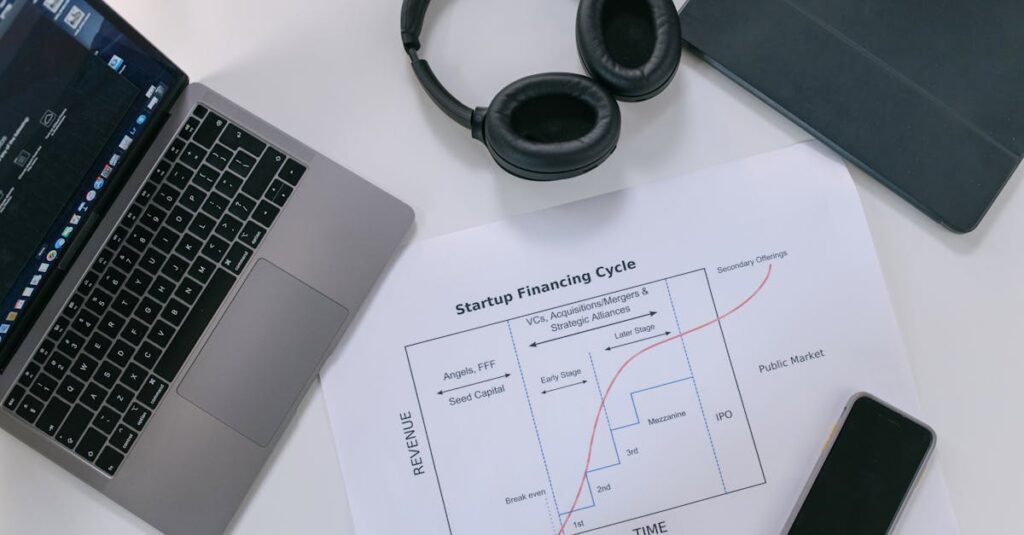Table of Contents
ToggleIn today’s tech-savvy world, finding the right mobile app development company can feel like searching for a needle in a haystack—if that needle was also a unicorn. With countless options available, it’s easy to get lost in a sea of flashy websites and impressive portfolios. But fear not! Navigating this digital jungle doesn’t have to be a daunting task.
Understanding Mobile App Development
Mobile app development involves a comprehensive process that transforms an idea into a fully functional application. This process typically includes stages such as planning, design, development, testing, and deployment. The initial phase focuses on identifying the app’s core functionality and target audience to align objectives.
Frameworks and technologies play a critical role in the development process. Different platforms like iOS and Android require specialized tools, such as Swift for iOS and Kotlin for Android. Developers often select their tech stack based on the app’s requirements, performance expectations, and user experience.
User experience and design significantly impact the success of an app. A well-designed user interface leads to higher engagement and retention rates. Specific elements like navigation, visuals, and responsiveness must cater to user behavior and preferences.
Testing ensures that the app functions correctly across devices and platforms. Continuous testing throughout the development cycle helps identify bugs and performance issues early. Developers often utilize various testing methods, including unit, integration, and UI testing, to provide a seamless user experience.
Deployment marks a significant milestone. After thorough testing, the app launches on platforms like the App Store or Google Play Store. Post-launch, monitoring user feedback and performance analytics becomes essential for making ongoing improvements.
Choosing the right mobile app development company requires understanding these foundational concepts. Familiarity with the development process, technologies, and user experience principles aids in making informed decisions. Armed with this knowledge, businesses can effectively evaluate potential partners.
Key Factors in Choosing a Development Company
Several key factors contribute to selecting the right mobile app development company. Evaluating these elements can streamline the selection process and lead to a successful partnership.
Portfolio and Expertise
Examining the portfolio provides insight into the company’s capabilities. Look for a diverse range of applications that align with the desired app’s functionalities. Companies that showcase relevant projects demonstrate their understanding of various domains. Reviewing case studies helps assess their problem-solving skills and innovation. It’s also essential to verify whether they possess experience in your industry or market segment. Companies with proven expertise can adapt strategies effectively to meet unique requirements.
Client Testimonials and Reviews
Reading client testimonials highlights previous client experiences. Authentic reviews reveal insights into project satisfaction and communication efficiency. Focus on patterns; consistent praise for timeliness and quality suggests reliability. Platforms such as Clutch or GoodFirms offer third-party reviews, adding credibility. Engaging directly with past clients, if possible, provides a deeper understanding of the company’s work ethic and collaborative nature. Clients’ positive feedback reflects commitment to delivering exceptional results.
Technological Proficiency
Assessing technological proficiency showcases a company’s ability to utilize modern tools. Familiarity with the latest frameworks and programming languages contributes to innovation. Companies skilled in both iOS and Android development demonstrate versatility in creating seamless applications. Additionally, inquire about their approach to integrating emerging technologies like AI or AR to ensure future readiness. A company’s commitment to ongoing training in new technologies indicates a proactive approach to maintaining relevance in an evolving landscape.
Budget and Pricing Models
Selecting the right budget and pricing model ensures that the investment aligns with the project’s goals and resources. Understanding the differences between pricing options streamlines the decision-making process.
Fixed Price vs. Time and Materials
Fixed price agreements involve a predetermined cost for the entire project. This model suits well-defined projects with clear requirements. In contrast, time and materials contracts offer flexibility by charging based on the actual hours spent and resources used. These arrangements work best for evolving projects where requirements may change. Companies should analyze project scope and their own preferences before choosing one of these models.
Value for Money
Value for money assesses the overall return on investment against the costs incurred. An effective mobile app development partner maximizes value through cost-efficient strategies without compromising quality. Comparing multiple proposals allows for better evaluations of services offered. Additionally, companies can negotiate features and functionalities within their budget. Focusing on long-term benefits rather than just initial costs contributes to more successful project outcomes.
Communication and Collaboration
Effective communication forms the backbone of a successful partnership with a mobile app development company. Prioritize the clarity of communication channels right from the initial discussions. Analyze how responsive the team is during inquiries and negotiations. Responsiveness indicates their commitment to transparency and support throughout the project.
Collaboration should also be a focal point in the selection process. Evaluate whether the company promotes a collaborative environment, encouraging input from clients at each stage of development. Flexibility in incorporating feedback suggests a willingness to adapt and refine the project based on client needs.
Regular updates are essential for keeping all parties informed. Seek out companies that provide structured reporting mechanisms, such as weekly progress emails or scheduled meetings. These practices help ensure alignment regarding timelines and project goals.
Additionally, assess the tools the company uses for communication and project management. A focus on modern collaboration software can enhance efficiency and streamline workflows. Familiarity with tools like Slack, Trello, or Jira may indicate the company’s commitment to keeping everyone on the same page.
Conflict resolution capabilities also deserve attention. Determine the team’s approach to handling misunderstandings or disagreements. Companies that demonstrate a proactive attitude toward conflict resolution generally inspire confidence in their reliability.
Lastly, consider the cultural fit between the client and the development team. Strong alignment in values and work ethics fosters a positive atmosphere that enhances collaboration. Prioritizing these dimensions of communication and collaboration boosts the likelihood of achieving a successful outcome for the mobile app development project.
Evaluating Post-Launch Support
Post-launch support plays a vital role in the success of a mobile app. Assessing a development company’s post-launch services helps ensure long-term app performance and user satisfaction. Consider the range of support options provided, including maintenance, updates, and bug fixes.
Maintenance services typically involve monitoring app performance and addressing any issues promptly. Regular updates contribute to keeping the app compatible with evolving operating systems and improving user experience. It’s essential to verify if the company offers a structured plan for ongoing support, ensuring issues are resolved efficiently.
Availability of a dedicated support team makes a significant difference. Accessibility to technical support during and after app launch helps address problems quickly. An easily reachable team signals a commitment to client needs, fostering trust.
Inquire about the response times for support requests. Fast response times indicate the company’s dedication to maintaining app functionality and user satisfaction. Additionally, a well-defined process for managing support requests enhances efficiency in addressing concerns.
Evaluate the educational resources the company provides for post-launch support. Documentation and guides assist with user navigation and troubleshooting, empowering users to solve minor issues independently. This kind of support increases user comfort with the app, ultimately leading to greater retention.
Review client testimonials that specifically mention post-launch experiences. Positive feedback reveals a company’s reliability and effectiveness in providing ongoing support. Strong post-launch assistance often distinguishes top-tier development companies from others.
Prioritize companies that demonstrate a proactive approach to post-launch support, ensuring the app remains relevant and functional in a competitive market. This consideration significantly impacts overall user engagement and satisfaction.
Choosing the right mobile app development company can seem daunting but it doesn’t have to be. By focusing on key factors like portfolio evaluation communication strategies and post-launch support businesses can navigate the selection process more effectively. Prioritizing a company that demonstrates a strong understanding of the development process and values client collaboration will lead to a more successful partnership.
Ultimately it’s about finding a development team that aligns with specific project goals and fosters a positive working relationship. This approach not only enhances the likelihood of a successful app launch but also ensures ongoing support and adaptation in a rapidly changing digital landscape. With the right partner in place businesses can turn their app ideas into reality and achieve lasting success.





